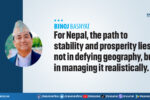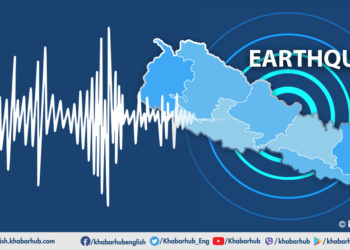KATHMANDU: Food and Agriculture Organization (FAO) of the United Nations has selected Nepal for the Regional Water Scarcity Program in the Asia Pacific region.
The program is aimed to support Nepal to bring agricultural water use to within the limits of sustainability, domestic and industrial water use to be disciplined by efficiency concerns (including water footprint analysis) and prepare the sector for a productive future with less water by assessing national water management capacities and policy effectiveness.
It is expected to ensure the formulation of appropriate policy to enhance the water management capacity at the national level in the context when water scarcity remains as one of the major issues in the region, thus causing an additional challenge to the sustainable socio-economic development process.
During the discussion about the identification of a policy relating to water scarcity for Nepal, the participants expressed their concern that despite being a rich zone in view of the availability of water resources, it was struggling with widespread water scarcity. “Proper utilization of available water resources is awaited.”
A significant focus on hydropower production has shadowed the issues of the irrigation sector, preventing the expected progress in the agricultural sector, they claimed, seeking the attention of state and stakeholders concerned towards that end.
Former Minister and Foundation’s chair Dipak Gyawali said most parts of Nepal reeled under water scarcity in eight months of the year(despite monsoon), dry days were becoming longer and government’s less priority to irrigation issues working as a fuel to the water crisis issue.
Stressing the need for focusing on the correlation among water, energy, and food in making related policies and laws, he said Nepal’s goals of prosperity would be helped by enhancing the efficiency of local government.
Two-thirds of the world population are facing the brunt of one-month long water scarcity, according to a report. Territorial locations and the climate are blamed for drying up water resources in the Asian Pacific Region.
Water scarcity is increasing by the year in South East Asia. Consumption of water is increasing thanks to the increasing human population, a change in the lifestyle of the people, increment in the supply of meat and dairy products and the production of bio-fuel.
Similarly, Deputy Director-General of the Department of Water Resources and Irrigation Shiva Kumar Basnet, Undersecretary of the Ministry of Forest and Environment Raju Sapkota and Undersecretary of the Department of Water Supply and Sewerage Pradip Mudbhari presented work papers.
The program was jointly organized by the FAO and Nepal Water Utilisation Foundation.









Comment